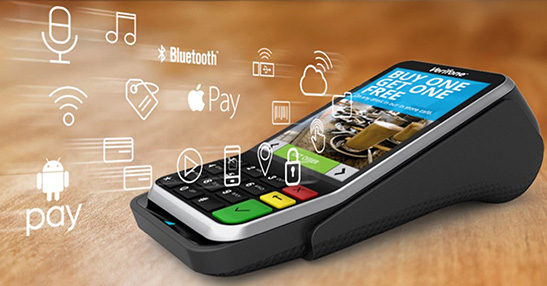
Mobile payment apps are set to take on an increased market share over the coming months and years.
For better or for worse, the mobile phone – or smartphone – has become an intrinsic part of our daily lives and is the single device that most people simply could not envisage life without. From its bread and butter functionality such as calling and sending messages to the more advanced social media, banking and email “apps”, it is a cornerstone of modern popular culture…
And now, with the relatively recent inception of mobile payments (the first “Mobile Payment System” was patented in 2000; however, the technology has only been popularised in the last 10 years or so), it takes on yet another role: making electronic point of sale (POS) transactions.
Now, not only can you manage your bank accounts and administer your cards via banking apps, but you can use your phone for retail purchases at payment terminals. In several countries around the world, you can now pay for your bus ticket, buy clothes, do your monthly grocery shop and grab a coffee all without needing a physical wallet and bank card.
Among the many such mobile applications – or apps – are Samsung Pay, Google Pay and Apple Pay. Frankly, it is hardly unsurprising that these three tech giants are the biggest investors in this mobile banking integration.
Take Apple, for example. With an estimated market capitalisation value of around $1 trillion, it has a larger market cap than the economies of 183 different countries. In fact, only 16 individual nations have a higher GDP (Gross Domestic Product) than Apple’s value.
Even the American king of coffee, Starbucks, has its own payment app which now processes five million orders a month and is used for 20% of its transactions in the US.
In the US, China and the UK, for instance, this technology has been well-received and has been adopted as a new form of E-commerce, but should we all be rushing to cut up our debit cards into tiny pieces?
Well, if you live in Spain, you will know that businesses have not been quite so quick on the uptake. While it is possible to pay in large retailers and supermarkets with your mobile, there are still (sadly, in this writer’s opinion) many smaller shops, bars and restaurants that still follow a “cash-only” rhetoric.
With the elimination of a cash-centred society comes greater security when making transactions (payments are often protected or insured by card companies), as well as a demonstrable paper trail and no need to store cash in any given premises (thereby reducing the risk of a break-in), among other advantages.
While hacking, cloning and credit card fraud will always be a risk to an account owner in the technological age, promoting a “cashless society” via initiatives and platforms such as mobile payments must surely be a good thing.
Disagree? As always, we’d love to hear from you, so please leave a comment below!
 en
en



 Vlaams-Nederlands
Vlaams-Nederlands
1 Comment
Leave a Comment
DISCLAIMER
The opinions and comments expressed by contributors to this Blog are theirs alone and do not necessarily reflect the views of VIVA Homes Under the Sun Ltd, any of its associated companies, or employees; nor is VIVA to be held responsible or accountable for the accuracy of any of the information supplied.
OuctusApril 17, 2020 at 7:40 am
Very helpful information for me
Have you got something to say?